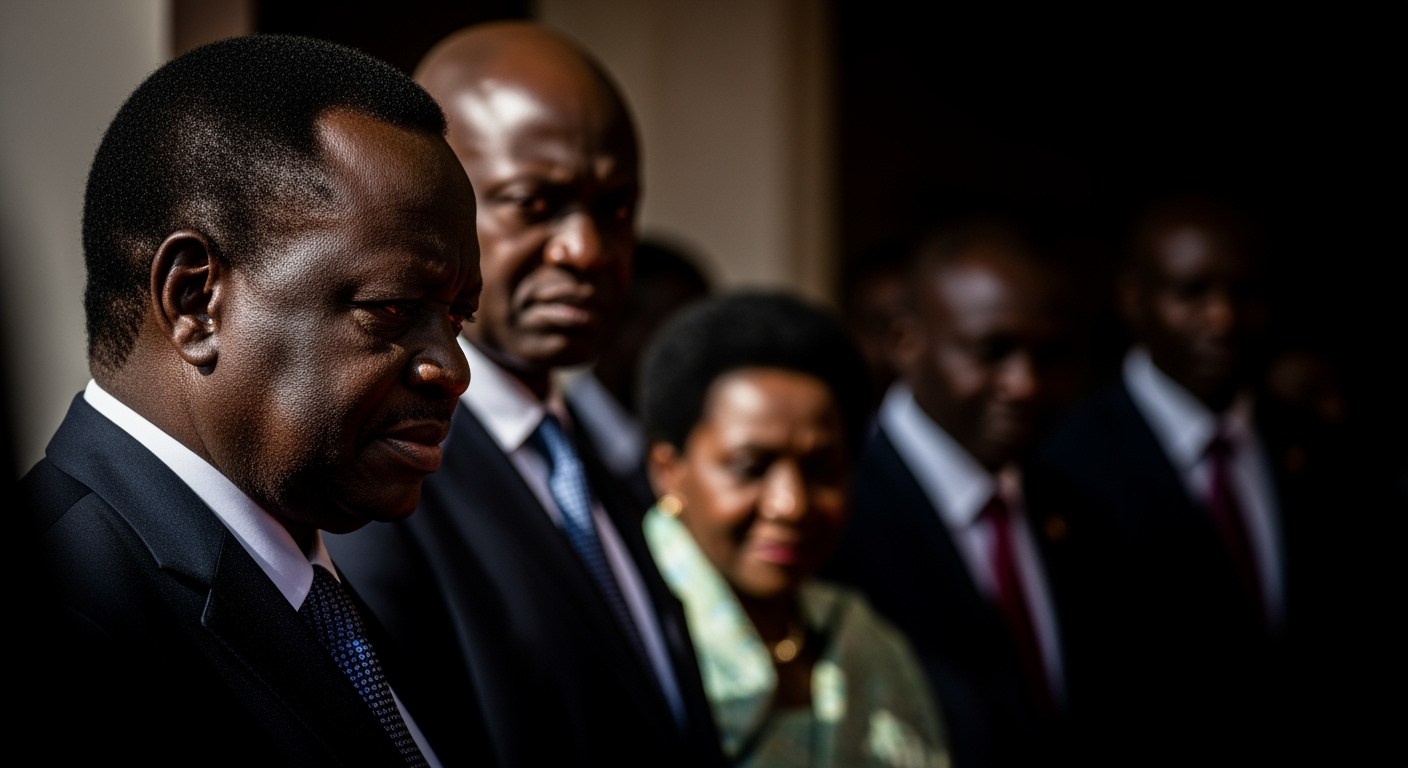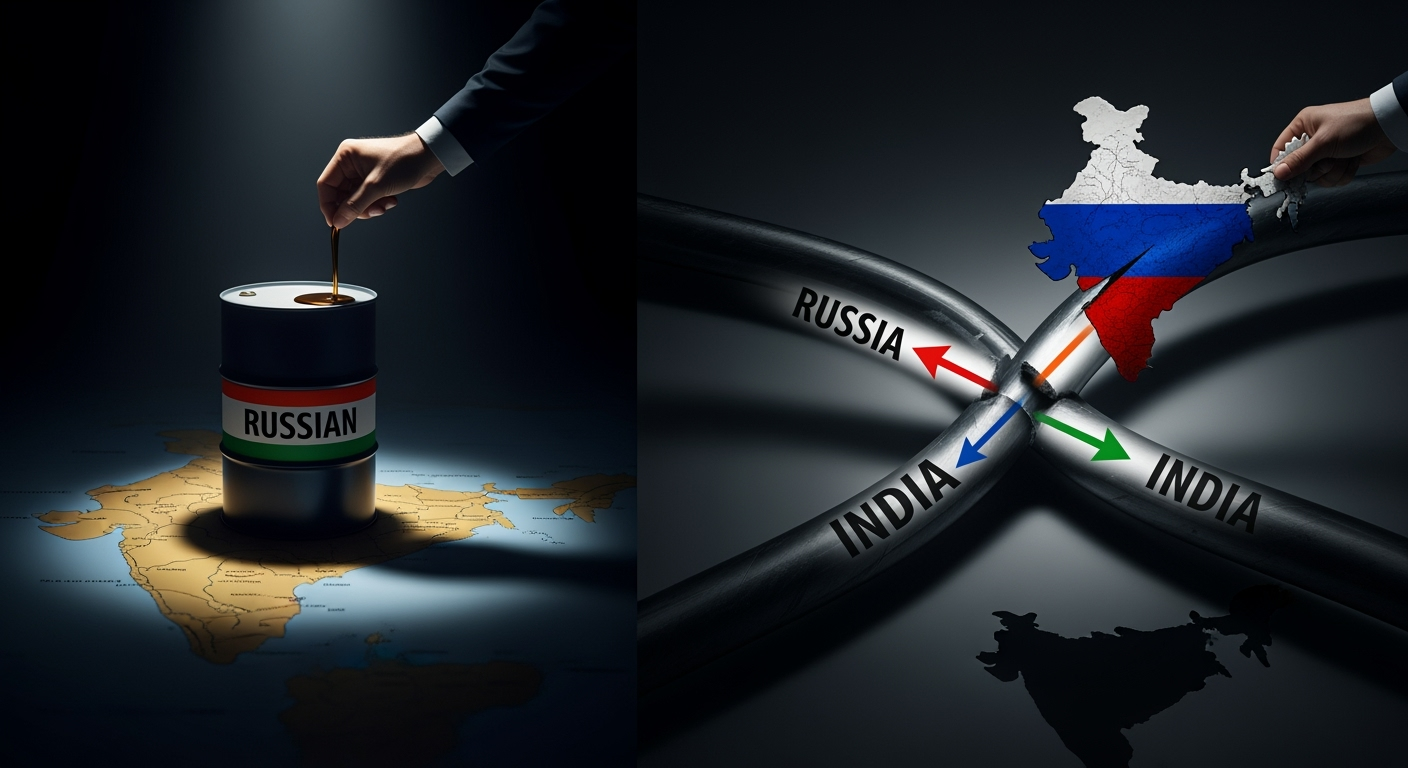Related Articles

Tragic Runway Excursion at Hong Kong Airport Claims Two Lives as Cargo Jet Plunges into Sea

Kenya Bids Solemn Farewell to Raila Odinga, Architect of Modern Democracy





WASHINGTON D.C. — In a significant development that could reshape global energy markets and geopolitical alliances, former President Donald Trump announced Wednesday that Indian Prime Minister Narendra Modi has assured him India would halt its purchases of Russian oil. The assertion, made during a White House press briefing, comes amidst escalating U.S. pressure on nations continuing to buy Russian crude, which Washington views as funding Moscow's ongoing war in Ukraine.
Trump characterized the alleged commitment as a "big step" and indicated that similar efforts would be directed towards China. He acknowledged that such a shift by India would not be immediate, describing it as "a little bit of a process, but that process will be over soon." The claim, however, has not been directly confirmed by New Delhi, with India's Ministry of External Affairs (MEA) emphasizing that the nation's energy import policies are primarily guided by the objective of safeguarding consumer interests in a volatile global market.
Donald Trump's pronouncement on Wednesday signals a potential turning point in Washington's strategy to isolate Russia economically. For months, the United States has voiced dissatisfaction over India's burgeoning trade in Russian oil, which surged dramatically following Moscow's invasion of Ukraine in February 2022. Prior to the conflict, Russia accounted for less than 1% of India's oil imports, but this figure climbed to approximately 40% as Russia offered steep discounts on its crude in the wake of Western sanctions.
The former president has not shied away from using economic leverage, imposing tariffs on Indian exports to the U.S. – initially 25% and later doubling to 50% – ostensibly to discourage the continued purchases of Russian crude. This pressure underscores a broader U.S. objective to diminish Russia's oil revenues and impact its ability to finance military operations. Should India indeed cease these imports, it would mark a substantial blow to Russia's energy exports and compel other major buyers, particularly China, to reassess their positions. Trump expressed his intent to pursue similar action with Beijing, stating, "Now we're going to get China to do the same thing."
India, as the world's third-largest oil importer, navigates a complex energy landscape driven by its rapidly growing economy and significant energy demands. The decision to dramatically increase Russian oil imports was rooted in economic pragmatism, allowing Indian refiners to capitalize on discounted prices. Estimates suggest these purchases have saved India billions of dollars, providing crucial fiscal relief in a period of global economic uncertainty and high energy costs.
For a nation heavily reliant on imported oil, securing energy at affordable rates is a national priority. India's Finance Minister previously stated that the country would buy fuel at discounted prices if available, prioritizing national interests. This approach has allowed India to maintain relatively stable energy prices for its vast population, a critical factor for economic stability and growth. The volume of Russian oil imported has been substantial, with Moscow exporting approximately 1.62 million barrels per day to India in September, accounting for roughly one-third of the country's total oil imports. This deep reliance on a diverse set of suppliers, including discounted Russian oil, has been a cornerstone of India's energy security strategy.
India's foreign policy throughout the Russia-Ukraine conflict has been characterized by a delicate balancing act. New Delhi has consistently called for an immediate cessation of hostilities and a peaceful resolution through dialogue and diplomacy, while abstaining from United Nations resolutions condemning Russia. This neutral stance is informed by India's long-standing strategic relationship with Russia, particularly its reliance on Russian military equipment. India's leaders have emphasized adherence to international law, the UN Charter, and respect for sovereignty and territorial integrity, yet they have also prioritized national interests and energy security.
Western nations, while acknowledging India's unique position, have exerted pressure to align with sanctions against Russia. However, Indian officials have repeatedly defended their oil purchases, citing them as vital for national energy security and maintaining sovereign decision-making. The recent claims by Trump and the subsequent measured response from the MEA highlight the ongoing diplomatic maneuvering between Washington and New Delhi, as both nations seek to advance their respective strategic objectives. The MEA statement underscored India's "consistent priority to safeguard the interests of the Indian consumer in a volatile energy scenario," noting that its "import policies are guided entirely by this objective."
While the implications of Trump's statement remain uncertain, India has been actively pursuing a comprehensive energy strategy focused on diversification and the transition to cleaner fuels. The country aims for energy independence by 2047, with significant investments in renewable energy sources such as solar, wind, and green hydrogen. By 2030, India targets 500 GW of non-fossil fuel capacity and plans to meet 50% of its energy needs from renewables. This ambitious transition includes expanding refining capacity, investing in natural gas, and broadening its base of oil and gas suppliers beyond traditional sources.
Notably, India has also been expanding its energy procurement from the United States, with energy trade expected to grow substantially in the near future. This diversification strategy serves a dual purpose: enhancing energy security by reducing over-reliance on any single region or supplier, and aligning with global climate goals. The dialogue between India and the U.S. on energy cooperation is ongoing, indicating a shared interest in strengthening ties while India pursues its national energy objectives.
Donald Trump's assertion regarding India's commitment to cease Russian oil imports introduces a new layer of complexity to the global energy landscape and international relations. While the immediate confirmation from New Delhi is pending, India's consistent emphasis on national energy security and consumer welfare underscores the multifaceted considerations guiding its decisions. The nation's pragmatic approach to securing discounted oil from Russia has been a direct response to market conditions, while its broader energy strategy points towards long-term diversification and a significant push into renewable sources.
The unfolding situation highlights the delicate balance nations must strike between geopolitical pressures and their own economic imperatives. As the world continues to grapple with the repercussions of geopolitical conflicts and the imperative of energy transition, India's role as a major energy consumer and emerging global power will remain pivotal, shaped by a confluence of economic necessity, strategic autonomy, and long-term sustainability goals.